
25 minute read
Alumni
Taking the Right Steps
by Jana F. Brown
WITH BEGINNINGS AT BERWICK, PROFESSIONAL DANCER HARPER WATTERS ’10 IS PURSUING HIS DREAMS.
Like just about everything in life, the arts have been heavily impacted by the COVID-19 pandemic. On March 12, 2020, Harper Watters ’10, a soloist for the Houston Ballet, was preparing to perform in a program that featured three one-act ballets. The performance was canceled and, since then, Watters and the other dancers have had to find ways to continue their creative expression.
“The approach I’m taking is just trying to continue to learn and educate myself on everything so that I can take the next step,” says Watters.
Dancing during the pandemic has meant learning how to coordinate with colleagues and choreographers via Zoom and how to manipulate separate performances into a cohesive piece via iMovie. In lockdown, Watters learned to dance in his living room, with remote direction from a choreographer – new experiences he would not have had if not for the circumstances of the last year.
“We’ve all been challenged,” he says. “But I think that’s the beauty of art. The silver lining is innovation, and what comes of it.”
Watters came to Berwick as a first grader in 1998, attracted to the School in part because it was the only one he toured that offered dance. “Having a thriving art scene at Berwick was really important,” he recalls, “and immediately the dance studio became a safe haven. It was not just because I had the natural skills that could be formed into something, but because that space with the teachers and the students was where I felt like I could turn the volume up on who I was.”
In 2007, Watters transferred to the Walnut Hill School for the Arts in Massachusetts. He made a connection with a WHS alum who helped facilitate enrollment in a program with the Houston Ballet in the summer of 2009. As a result of that, Watters was offered a contract in Houston’s second company, “which I tell people is like the minor leagues of ballet.” He was 16 when he moved to Houston to train. Two years later, in 2011, Watters was offered a contract to join the main company as an apprentice. He has since been promoted to Demi-soloist (2016) and Soloist (2017). With 65 dancers, Houston Ballet is the fourth largest ballet company in the United States, behind only New York, San Francisco, and Boston. In joining the company, Watters has found not only a career path but also a community.
“Pursuing a career in dance was all very new and unknown to me,” he says. “Coming from New England, we don’t have a ballet company that is the size of San Francisco and New York. And so I just didn’t know that you could have a career in that.”
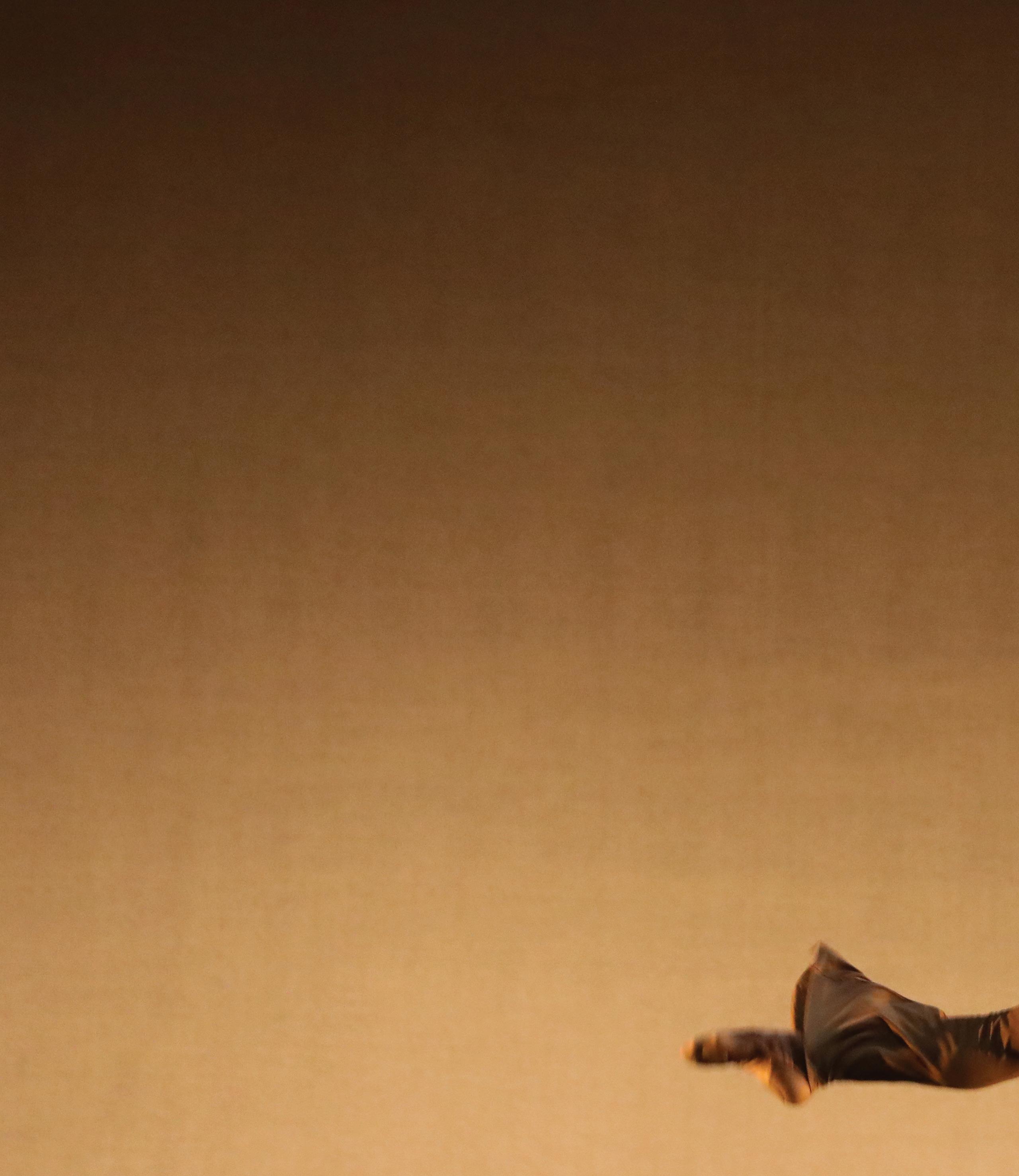
That is part of what Watters discussed in a virtual visit with second and third graders at Berwick in the fall. He was impressed with the students’ enthusiasm in Kelly Martin’s class – they were engaged, asked many questions, and treated Watters like a celebrity. In addition to their queries about a dancer’s life, they also enjoyed watching Watters’ videos with the Houston Ballet, particularly in The Nutcracker.
“I just was so impressed by the questions they were asking and the hunger they had to discover,” says Watters, “and also the topics that were being discussed.”
Watters says “I do a lot of flamboyant, colorful content on my social media page involving heels and stuff like that.” The content generated a discussion about gender with the young Berwick students.
“I said, ‘Who are heels meant for? Are they meant for boys or girls?’” Watters says. “And the whole class immediately said ‘both.’ And I was like, these are second and third graders. I was shocked. So it was a really beautiful moment.”
While Watters acknowledges that professional dancers are not often afforded the same platform as actors or athletes in more prominent sports leagues, he has been watching the social justice movement in the United States carefully. He and the other members of the Houston Ballet company, like many other artists, are using the opportunity for expression and activism through the arts. He also appreciates the chance to share his personal journey of becoming a professional dancer, to let young students know there are many different paths.
“I think it’s so important to create a space for kids to know that it’s okay to pursue your dreams or to lean into what makes you happy,” he says. “ It was so exciting to interact with the students. That alone was a step in the right direction.”
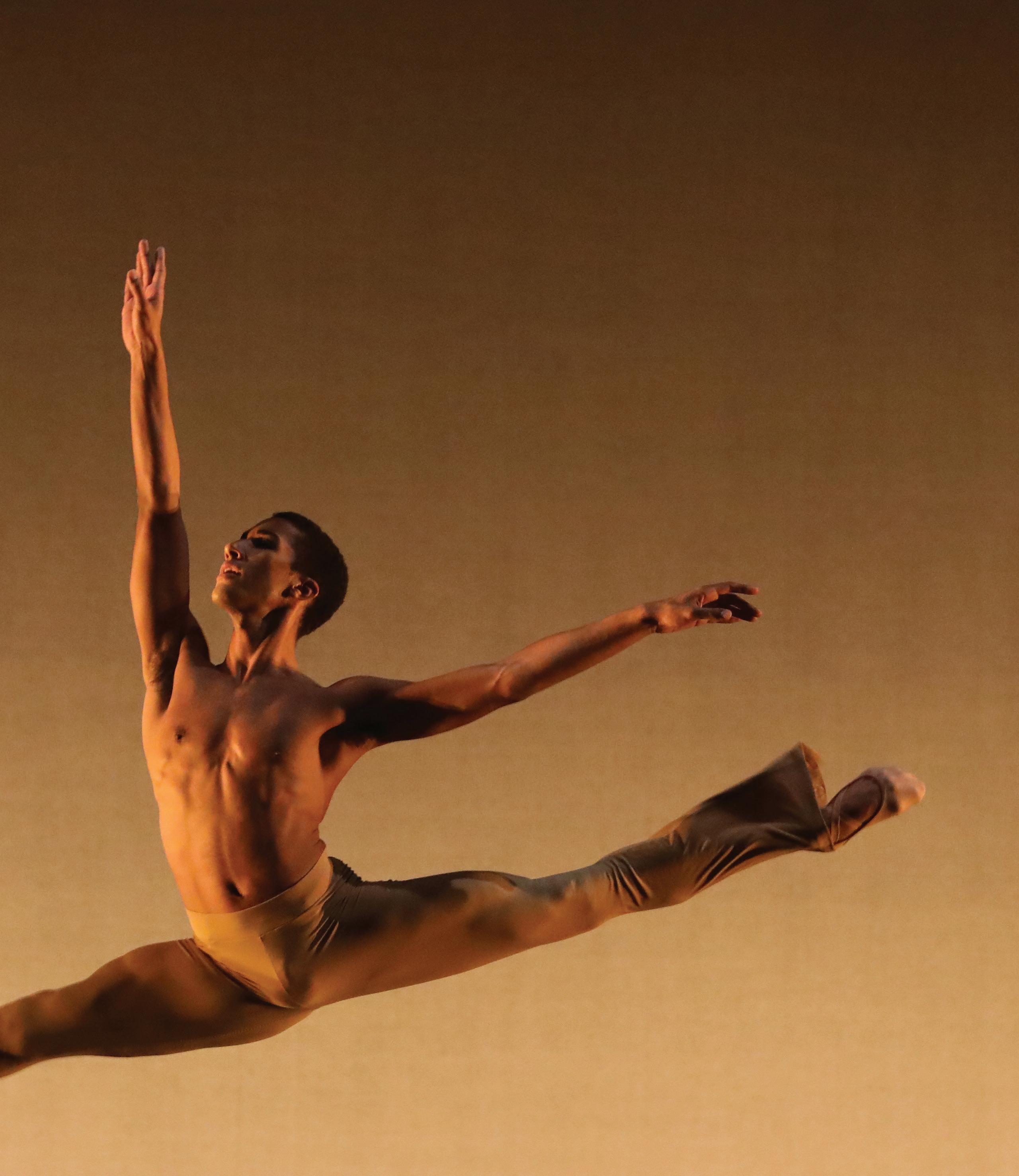
Mind, Body, and Heart
by Jana F. Brown
EVIDENCE-BASED MINDFULNESS HAS BEEN TRANSFORMATIVE FOR BRIAN BLISS ’90. NOW HE IS HELPING OTHERS.
It took years of self-reflection and selfawareness for Brian Bliss ’90 to become grounded in a mindful lifestyle.
A native of York, Maine, Bliss attended Drew University after graduating from Berwick Academy. There, he majored in Russian Area Studies and became interested in pursuing a Juris Doctor. Between his second and third years at George Washington University Law School, Bliss attended a program focused on international human rights law at Oxford University in the U.K. At the time, he was struggling to understand the conflict in the former Yugoslavia.
“I wanted to work in that field because it was so inexplicable to me that people who were previously neighbors could devolve to the point where they were killing each other,” Bliss explains. “I thought I might be able to participate in international human rights law in a meaningful way.”
But Bliss became disillusioned with the field during a post-law-school internship in Sarajevo. He returned to the U.S. and began pursuing a career as a freelance journalist, which sent him to Montenegro, Bulgaria, and Turkey. That, too, proved not to be the right match for Bliss.
“I came back to the U.S. at the end of 2000 and became aware that I needed to do some soul-searching and figure out a better way to take care of myself and contribute to the world,” he says.
That realization led Bliss to the Esalen Institute in California, an experience that proved transformative. It gave him the opportunity to examine his own behavioral and cognitive patterns, and he discovered a way to live life more mindfully. More than a decade later, Bliss returned to Esalen, where he discovered the practice of meditation, which he says “changed my life. I began to see more clearly these patterns that kept me from fully experiencing my life in a way that reflected the love and the beauty I find all around me, especially in my family.”
In 2019, Bliss discovered Mindfulness Based Stress Reduction (MBSR), an intensive mindfulness program that helps people manage stress, anxiety, depression, and pain. He enrolled in MBSR teacher training through the Mindfulness Center in the School of Public Health at Brown University. Today, he owns and operates Bliss Mindfulness (blissmindfulness.com) out of his home in Kittery, Maine. Through his practice, he conducts mindfulness and meditation workshops, including for fellow attorneys through the Maine State Bar Association. His teachings promote being in touch with the mind, body, and heart.
“A big piece of MBSR is how do we promote human flourishing in people who are otherwise healthy to become more resilient, have increased peace of mind, empathy, and lower implicit bias?” Bliss says. “Given life in general the accelerated pace of work and the 24/7 approach that is governing us, the incursion of work into the personal sphere, and spiraling stress in the pandemic - it is a helpful time to be [teaching MBSR].”
Bliss offers free 15 minute mini-meditations (via Zoom) on Tuesdays in partnership with the York Public Library. He also recommends free resources online, including the meditation app Insight Timer, and offers an eight-week online MBSR class.
“The ideal situation is for people to have the experience of learning skills that will help them be in closer contact with the detailed reality of their experiences,” he says. “This manifests in terms of bodily sensations and emotions. When we become more aware of our inner realities, the more we can respond wisely. It’s not so much about rationalizing as much as it is about contacting the real experience we are having. We also work on communication, becoming more aware of our patterns around communication, and getting a finer grained picture of our experiences. This allows us to choose the world we see.”
Brian Bliss ’90
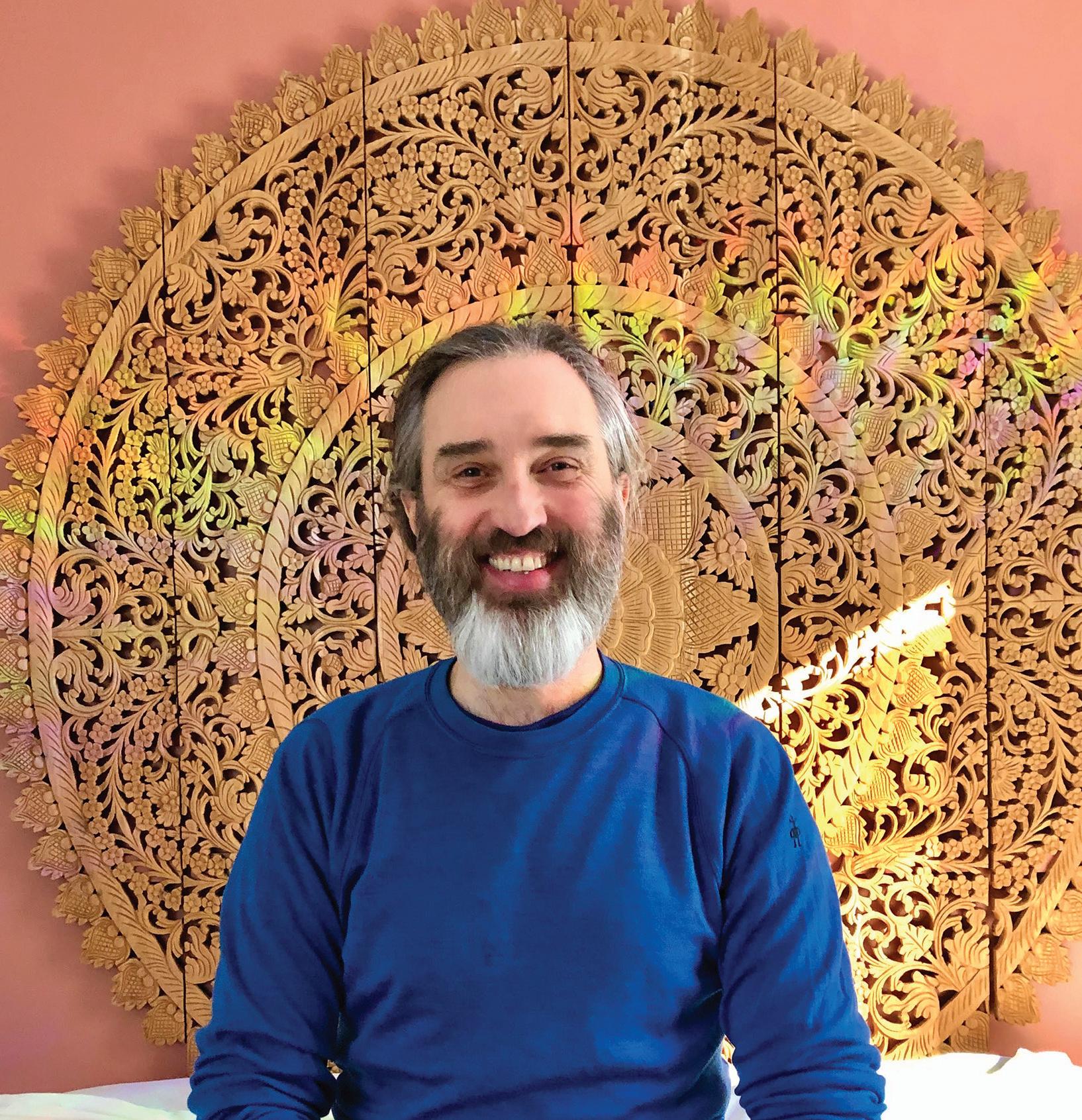
Coast Guard Lawyer
by Jana F. Brown
KATIE GRAICHEN ’08 HAS FORGED A PATH THAT COMBINES HER LOVE OF THE SEA WITH HER PASSION FOR THE LAW.
In many ways, the decision by Katie Graichen ’08 to pursue a legal career with the U.S. Coast Guard Office of the Judge Advocate General (CGJAG) was a perfect way to combine her love of the sea with her interest in the law.
“I feel so lucky to have found this job, because it does feel that way to me,” says Graichen of marrying the two interests.
Graichen grew up in Arundel, Maine, and attended Berwick Academy along with her twin sister, Lisa ’08, from the second grade on (brother Matt graduated in 2012). The Seacoast contributed to her affinity for the environment, especially maritime life. At Berwick, Graichen enjoyed a challenging – but worthwhile – year of AP Biology and went on to study environmental policy at Colby College.
In the fall of 2010, during her junior year, Graichen spent a semester at the Mystic Seaport Museum in Connecticut through the Williams-Mystic Maritime Studies Program. Coincidentally, alumnus Steve White ‘71 was serving as CEO of the Mystic Seaport Museum during Graichen’s time. While there, she took classes in maritime policy, history, literature, and science. One “field trip” was ten days at sea aboard a vessel that took the college students from Woods Hole, Mass., to the Gulf of Maine. Another excursion was to the Gulf Coast, where Graichen quite literally glimpsed her future.
“During that trip, we took a tour down the Mississippi River on a steamboat,” she says, “where I saw a Navy water tower – it’s right next to where I ended up being stationed.”
It was during that year when Graichen began contemplating a career in the military.
In center, Katie Graichen ’08
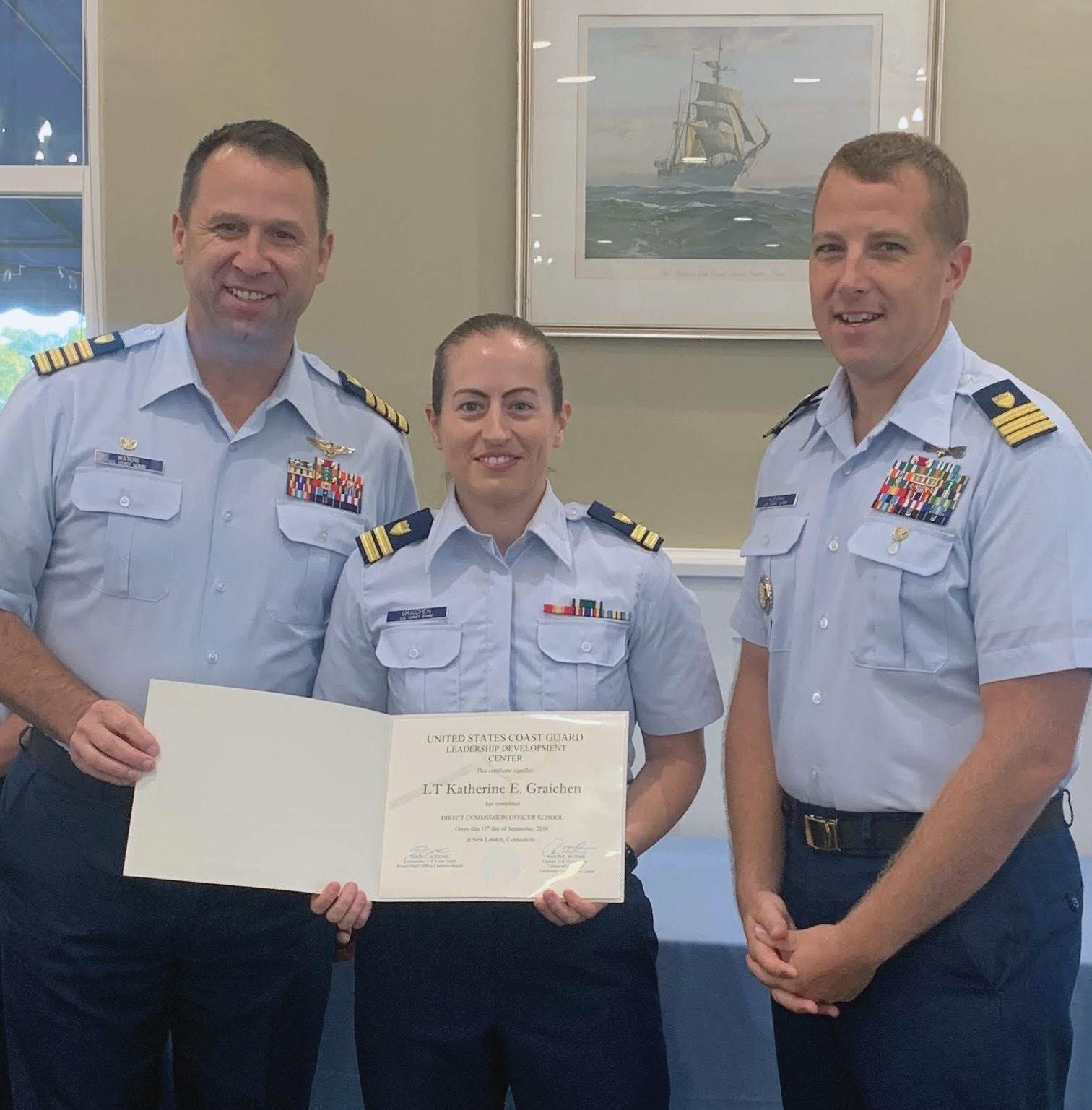
She completed the Marine Corps Officer Candidates School at Quantico, Va., immediately after her Colby graduation. She was commissioned as a Second Lieutenant and stationed in New Orleans as an adjutant (administrative officer). Her involvement there for the next three years, including work with Marine Corps legal programs, piqued Graichen’s interest in becoming a judge advocate in the military. She attended law school at the University of Connecticut (Class of 2019), where she was an executive editor of the Connecticut Law Review.
“I had been thinking about joining the Coast Guard during that semester at Mystic Seaport and then working with the Marine Corps lawyers in New Orleans,” says Graichen. “When we didn’t know the answer to something, we turned to a judge advocate; that’s what inspired me to apply to law school. I had come off of active duty with the Marine Corps, and it seemed like a good time to transition to the Coast Guard.”
Graichen has been in her current position at the U.S. Coast Guard Office of Maritime & International Law in Washington, D.C., for nearly two years. She appreciates the diverse backgrounds of the professionals with whom she works and says it is appealing to be a part of a community of individuals with a wide range of legal expertise. Her work focuses on supporting Coast Guard operations, primarily its counter-drug mission, migrant interdiction operations, and fisheries. She is often a liaison between the Coast Guard, Department of State, and Department of Justice in cases where drugs are found on board a vessel.
Committed for at least four years of service, Graichen will remain in Washington for the near future. While she is in the Coast Guard and lives in the Waterfront neighborhood of D.C., she still misses the Seacoast and her family, including her twin sister’s infant twins.
“I miss the ocean, but I run along the Potomac when I can,” she says, “ and I love what I am doing, so I am excited to see what this work brings.”
Life Lessons
KEN LAFLER ’82 IS GRATEFUL FOR THE OPPORTUNITY TO GIVE BACK TO BERWICK.
by Jana F. Brown
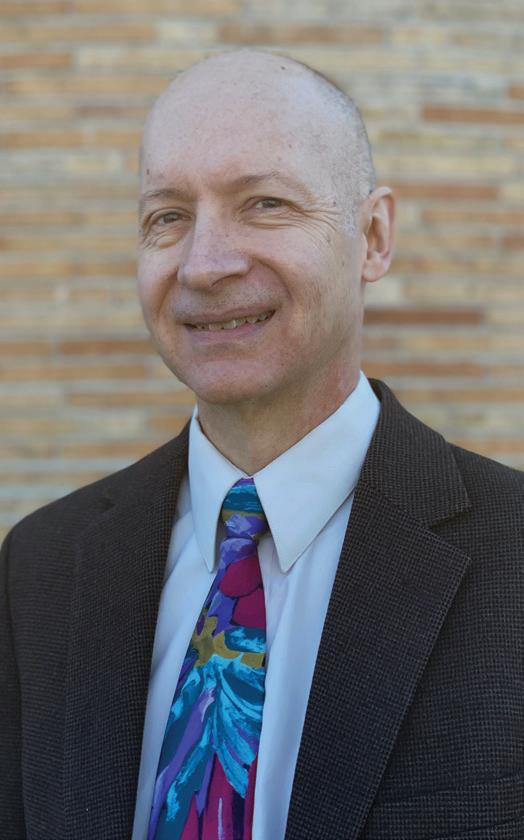
Ken Lafler ’82 enrolled at Berwick Academy in the seventh grade. After graduation, he went on to earn his B.A. in political science from Williams College. He spent more than three decades (19872019) in higher education at Harvard Law School, most recently as the Assistant Dean for Student Financial Services. He retired from that position at the end of 2019 to focus on his music career. A new member of Berwick’s Alumni Advisory Board, Lafler spoke with Berwick Today about his career, his devotion to Berwick, and what has impressed him about the School over the last several years.
HOW DID YOU END UP AT BERWICK?
A teacher at my public school in Rochester, N.H., recommended Berwick to my parents. It was a life changer when I realized everybody else was there because they wanted to learn, too. That was exactly what I was looking for.
HOW DID BERWICK HELP TO PREPARE YOU FOR YOUR UNDERGRADUATE EXPERIENCE AT WILLIAMS?
I majored in political science because I liked to read and write. I had learned to write at Berwick, going back to Betsy Langer’s seventh grade English class. She would assign a weekly composition, two pages due every Friday. Having a writing assignment every week in seventh grade put me on the road to learning to write.
TELL US ABOUT YOUR ROLE AT HARVARD LAW SCHOOL, AND HOW YOU CAME TO WORK IN HIGHER ED.
I moved to Boston after college. I was a musician and was looking for a job that would allow for work-life balance. I had a good experience at Berwick and college and thought an academic work environment would be a good fit. Harvard offered me a choice – an entry level job in admissions or financial aid. I chose financial aid because I had received financial aid at Berwick and in college. A big part of what appealed to me was that financial aid is a great field to learn conflict management skills. Financial issues create a lot of stress for people. I liked helping with that.
WHAT HAVE YOU LEARNED THAT WOULD BE HELPFUL TO PASS ALONG TO BERWICK COMMUNITY MEMBERS WITH COLLEGE OR GRAD SCHOOL FINANCING AHEAD OF THEM?
As a society, we don’t really teach financial literacy to young people, and that is really unfortunate, because having basic financial analysis skills allows you to remove a lot of the stress from financial decisions. When you’re looking at a college decision, there are a lot of factors to
Ken Lafler ’82 speaking to Class of 2020 about financial literacy
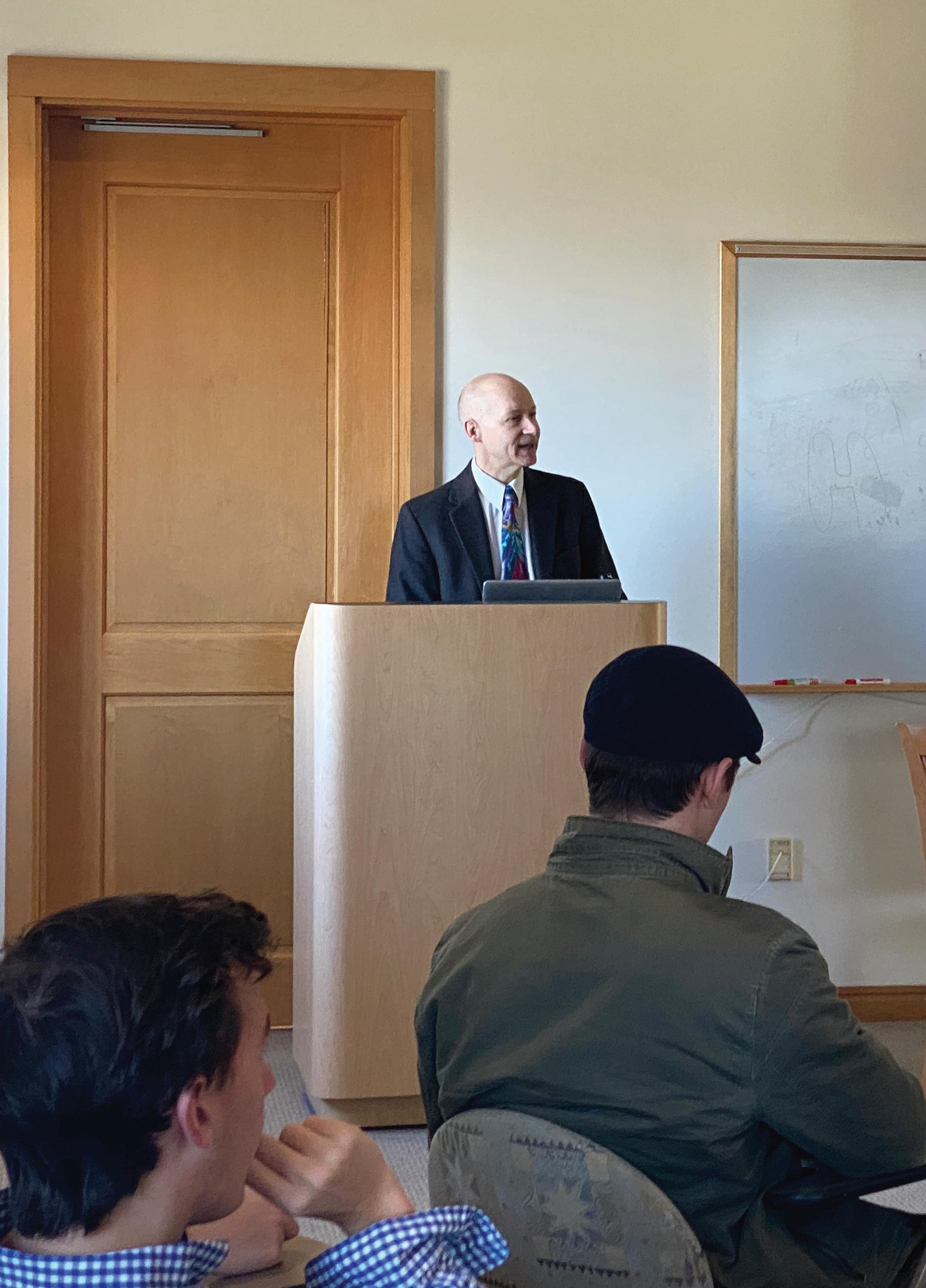
consider, but the financial piece is huge. The first thing I tell people is how to estimate what kind of income bump you might expect from a given level of education. Income outcomes for graduates are an important consideration. If you are looking at taking on debt, how do you determine what the loan payment will look like? Knowing that you will graduate with $50k of debt is not as meaningful as knowing that represents a $500 monthly payment for 10 years. That tells you how much you are going to have to take out of your income every month. Once you know those things, you can determine if the income bump from the education justifies the cost. These are discussions the whole family should participate in. It’s a great opportunity to teach young people about making important life decisions.
YOU’RE A MEMBER OF THE ALUMNI ADVISORY BOARD. WHY DID YOU WANT TO GET INVOLVED?
It was incredibly helpful in my life to have gone to Berwick. The education I got changed everything for me. I have always felt grateful for that. It’s interesting to see how the school has grown over the years since I was a student. I’ve been in educational administration for decades, and see Berwick as very well run. It impressed me how quickly and thoughtfully they adapted to the pandemic. For me, it’s appealing to get involved with a place that’s doing the right things. The direction the School is going with cultural competency and diversity and inclusion are incredibly important. Nothing is more important for a school than to help its students become compassionate, ethical human beings with a broad knowledge of the world.
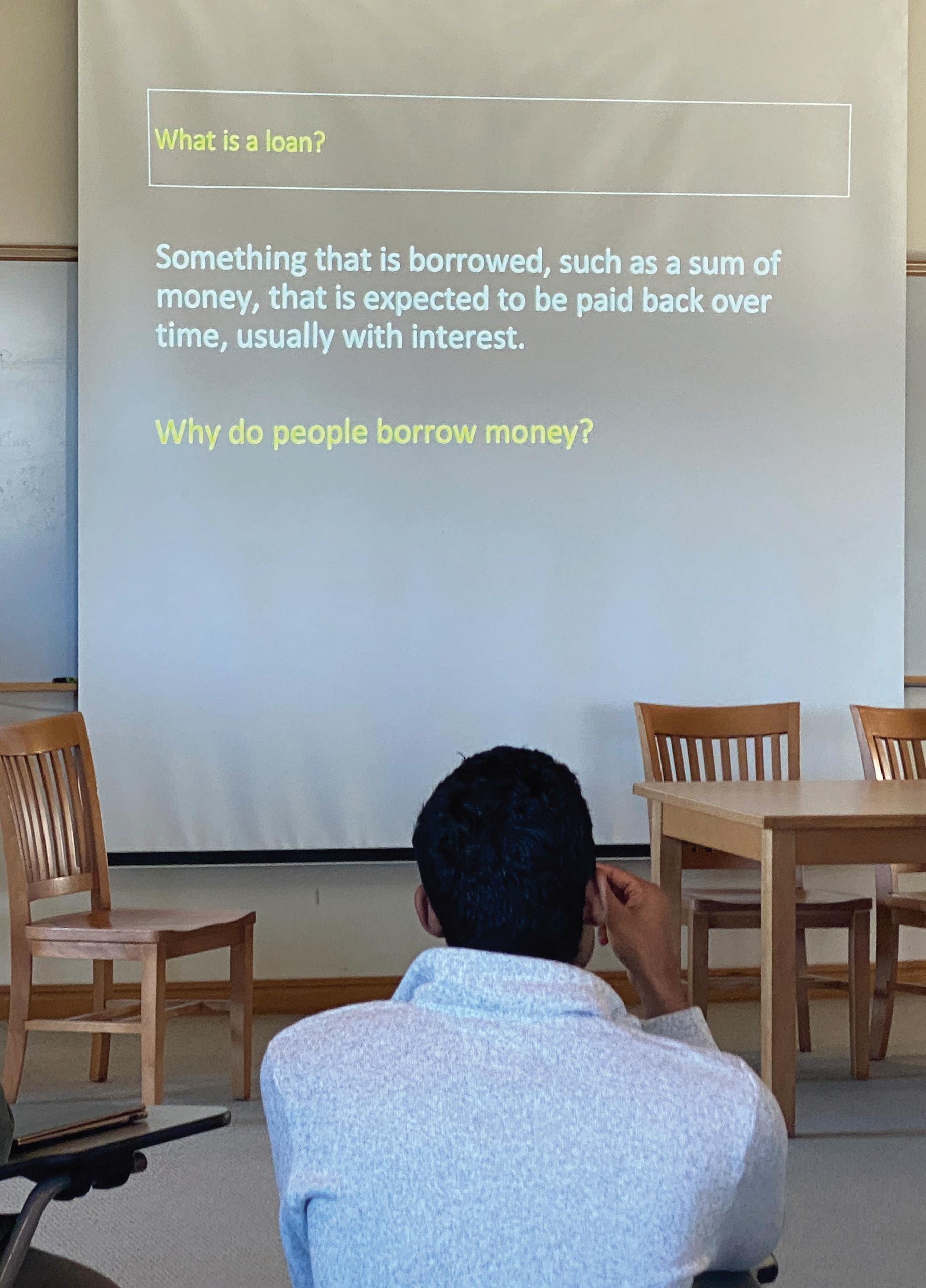
FOR BERWICK, WHAT GOOD DO YOU THINK MIGHT COME FROM THE CHALLENGES OF THE LAST YEAR?
Having done some crisis management of my own in the past, when an organization can go through something like this and address it as a community, it’s a very positive step. At Berwick, there has been lots of room for input from all the stakeholders, and that builds stronger relationships and stronger reliance on the community. Students are always watching and learning. I hope some of what they are seeing in Berwick’s response to the pandemic is rubbing off on them in a positive way.
YOU HAVE BEEN A MUSICIAN FOR DECADES. TELL US ABOUT THE IMPORTANCE OF MUSIC IN YOUR LIFE?
Music is central to my identity, but it wasn’t until I was in college that I knew I wanted to play in public. I moved to Boston and have played many different types of music. I was in a folk duet, have been in alternative rock bands, have done punk, instrumental lounge music, instrumental surf music, country. In the late 90s, I was in a band that got signed to a record deal with an independent label based in New York City. It was the achievement of a dream to have that opportunity. After that, I stayed involved in music, and that was the reason I retired early. I was planning to do 60-80 shows last year, but the pandemic came along, and they all got canceled. I look forward to eventually being able to go back to playing. I’m using the time to practice a lot, take online classes, and record with bandmates from a distance. It has not been exactly what I expected, but it has been a good opportunity to learn new things.
New Board Trustee Members
NATALEE P. OHAYON MARTIN ’01
Natalee is the Director of Development for the University of Connecticut School of Medicine. She has been active in her local community and throughout New England, serving on boards or committees of the Mandell Jewish Community Center, the Connecticut Breastfeeding Coalition, and the Mothers Milk Bank of the Northeast, as well as the PTO of her daughters’ school. As a proud alumna of Berwick Academy, Natalee always hoped to give back in some way to the Hilltop. She is proud to serve as Alumni Advisory Board President and as a member of the Board of Trustees. While she has lived for many years in West Hartford, Conn., with her husband, two daughters, two cats, and dog, Natalee and her family make frequent trips home to the Seacoast – especially their beloved Rye Beach – as often as possible.
SUZANNE MILLER, P’16,’19
Suzanne graduated from Phillips Andover before earning a B.S. in biology from Lafayette College and an M.S. in natural resources from the University of Massachusetts at Amherst. After working as an environmental consultant, she decided to become a full-time parent to her two children. Since then, Suzanne has used her academic knowledge as an active volunteer in the nonprofit world. She is a 2017 graduate of Leadership Seacoast and is a Court Appointed Special Advocate (CASA) in the Salem and Lawrence court systems. She also enjoys cooking a weekly dinner for Mitch’s Place Homeless Shelter residents at Emmaus with her mother and sister. Suzanne serves on the board of directors for the Triangle Club in Dover, N.H., and on the board of governors for the Haverhill Country Club. She served as the president of the Berwick Parent Community from 2014 to 2016, while her sons were at the School, and was a member of the Berwick Board of Trustees at that time. During her free time, Suzanne enjoys golfing, skiing, and gardening. She resides in Atkinson, N.H., with her husband and their golden retriever.
Persevering
Erin Sullivan ’18 and teammates at Bucknell University
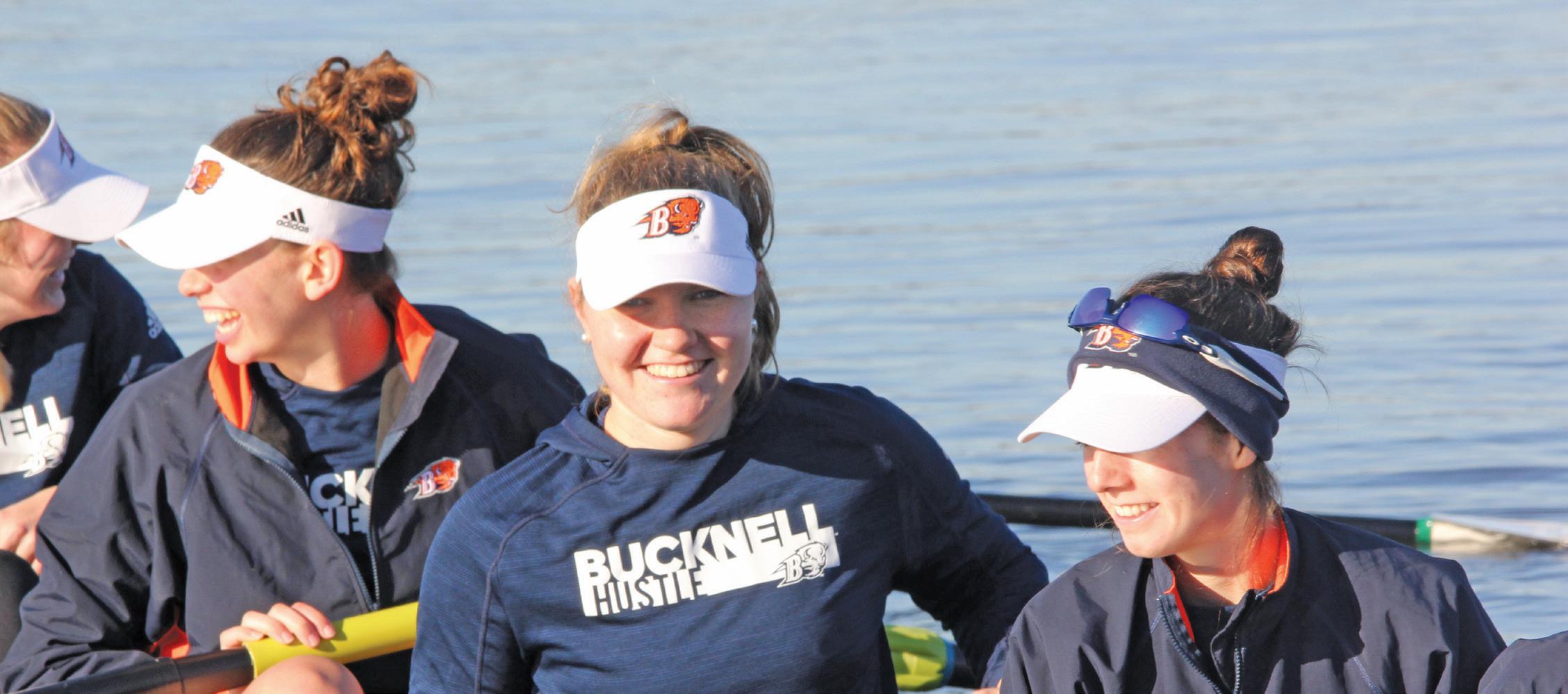
TWINS ERIN ’18 AND RYAN SULLIVAN ’18 PUSH AHEAD IN THEIR COLLEGIATE ATHLETIC CAREERS IN SPITE OF PANDEMIC.
Shortened or modified seasons, wearing masks while competing, and contemplating the uncertainty of college sports during the COVID-19 pandemic have not deterred twins Erin ’18 and Ryan Sullivan ’18 from pursuing the sports they love.
Erin is a junior rower at Bucknell University in Pennsylvania, where she is the stroke (rower seated closest to the stern of the boat who sets the rate and rhythm of strokes for the rest of the team) in the women’s first varsity eight. After completing a post-graduate year at Choate Rosemary Hall, Ryan is in his sophomore year at the College of Wooster in Ohio, and is a pitcher for the Fighting Scots’ baseball team.
At Berwick, Erin was a three-year member of the varsity four and a two-year captain of the girls rowing program, earning team MVP honors in her junior year. She also captained Berwick’s girls cross country and swimming teams. With her help, the Berwick rowing team won the Maine Youth Rowing Association (MYRA) championship for three consecutive years, while the Berwick swim team earned three New England Prep School Championship (NEPSAC) titles. She was named to the All-Patriot League first team as a freshman at Bucknell. Her sophomore season at Bucknell, where she is studying biomedical engineering, was cut short by the pandemic.
In baseball, Ryan was a three-year captain, a two-time EIL Player of the Year, and a four-time first-team All-EIL selection at Berwick. Berwick won the league championship in his last season with the team. He also played varsity golf and basketball. His freshman season at Wooster was canceled in March due to COVID-19. He plans to major in environmental geoscience.
Berwick Director of Athletics Rob Quinn spoke with the Sullivans about their college athletic careers and how the pandemic has shaped their views of team dynamics. Rob Quinn: Within your ranks of rowing and baseball, have you seen your athletic community grow closer in the past year?
Erin Sullivan: When we first heard the news, we were on a training trip. We had a conversation with the team the night before we were headed home. It was a really neat moment for the seniors to share some words and for everyone just to be together. I think the community has grown in terms of the need to put more effort into it to make it work, because you’re not able to be super close at practice all the time or you can’t go grab a meal together. So, you definitely have to put in extra effort to check in with one another and grow.
Ryan Sullivan: For my team, I’d say we’ve become a lot more appreciative of the baseball we do end up getting to play.
RQ: Are there any new positive traditions or activities that were developed during the pandemic that will likely continue into the future?
ES: I think just the fact that before, to have a team meeting, we’d have to be on campus. Now, we’ve been able to have one every week, so we’ve been able to spend additional time outside of practice. Everyone’s just been more grateful in general.
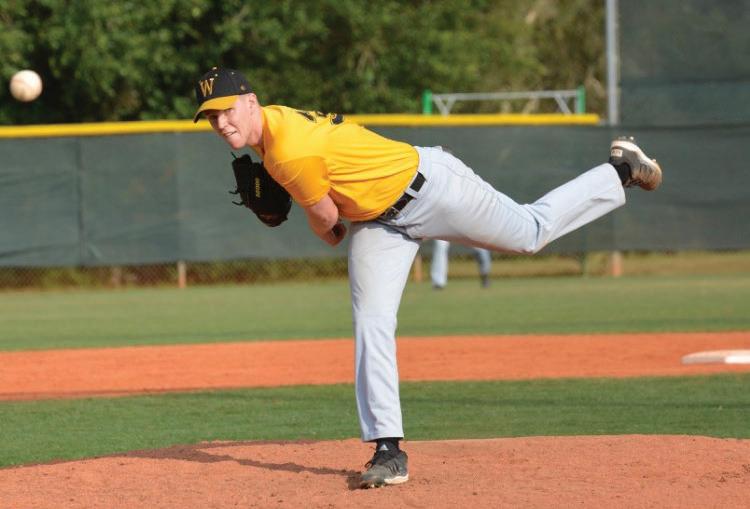
Ryan Sullivan ’18 pitching out
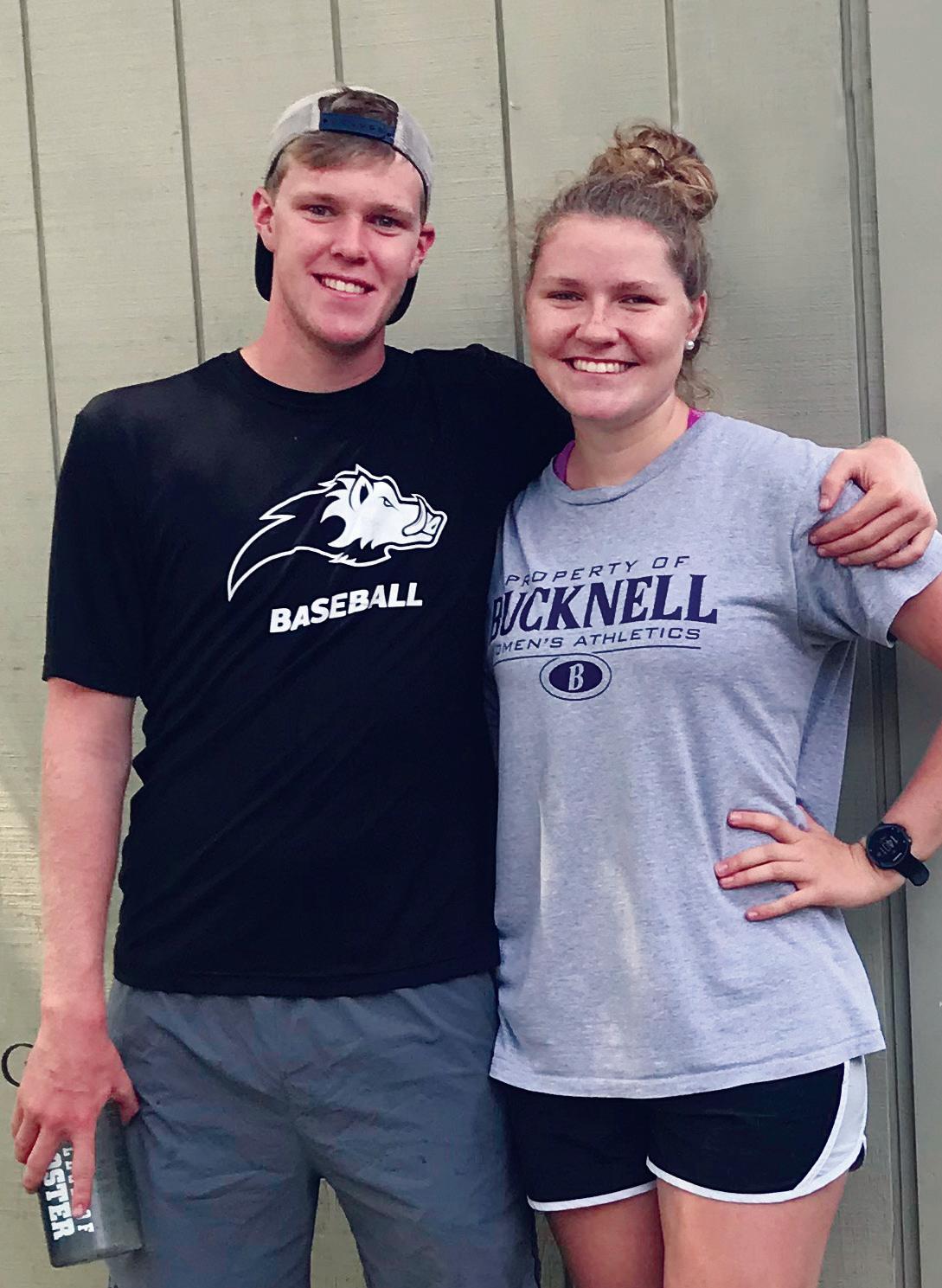
RS: Over the summer, we started a team Monday mile, where every Monday we’d run a mile and see how fast we could do it. Just a little extra competition. Communication when we’re not on campus has grown a ton. I know as pitchers, a lot of us are sharing what we’ve been doing in the offseason. Me and two of my close friends on the pitching staff, we have a group chat between the three of us. My buddy is kind of a similar pitcher to me, and he’s the only other kid from Massachusetts on the team. So just having a little competition with him, seeing who can be the hardest thrower from Massachusetts.
RQ: Are there any ways in which you see your athletics program or sport emerging stronger than before?
ES: I think it’s made us reevaluate our attitude to how we approach our sport. I think sometimes before you would think, ‘I’m really tired. I’ve had a long day. Now I have to go be on the water for two hours.’ Now, it’s, ‘Wow, I’ve had a long day. I’m tired. Now I get to go be on the water for two hours.’ It’s not taking for granted what we have available to us or what we get to do. And I think it’s also really made us focus on team culture, how to grow relationships and trust, and how to stay motivated despite everything else going on. RS: A lot of the frustration early on gave almost an us-against-the-world mentality with the team, which made us grow closer. Like we want to play games that we’re not allowed to. Now, with so much craziness and hecticness going on in the world, just trying to push all that out the window and focus on the core group we have and trying to win some ballgames if we’ve got a chance.
RQ: What kind of advice would you give Berwick student-athletes or the Berwick community right now?
ES: [Your time at Berwick] goes really fast, so just enjoy it and live in the moment. Whether in your sport or in academics or in personal growth terms, just trying to improve a little something every day can go a long way.
RS: Appreciate being around your teammates when you do get a chance to play with them. I don’t really remember the outcomes of specific games. The stuff I remember is just driving back on the bus, shagging fly balls at practice, and messing around with those guys. It’s the small things that you’re going to miss once you graduate.
Alumni Advisory Board Update
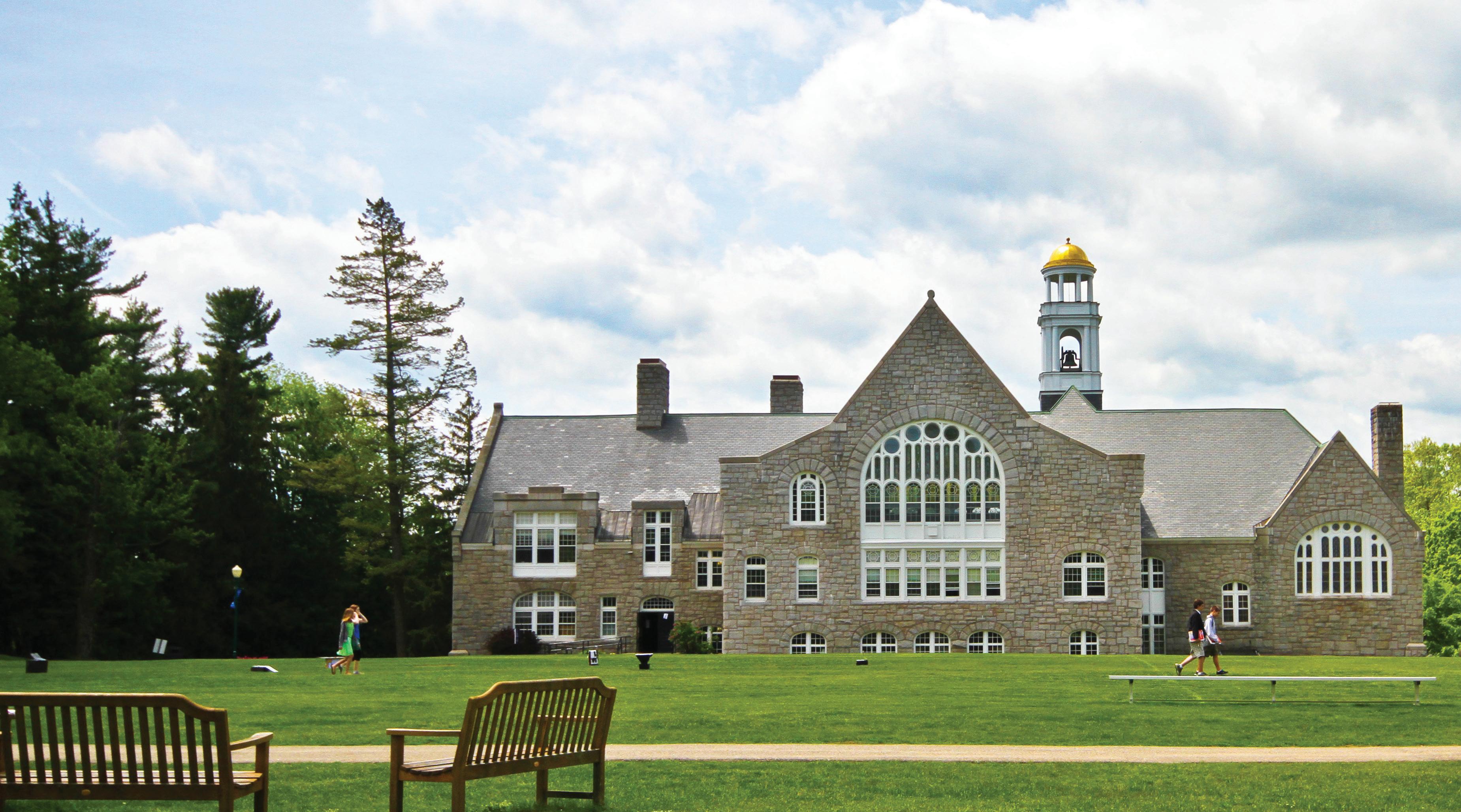
The Alumni Advisory Board identified three pillars that would guide its work to continue building and strengthening our community of engaged alumni.
PILLAR 1 INNOVATION
The Alumni Advisory Board commits to support the Innovation Pursuits (IP) program at Berwick Academy by:
• serving as mentors or helping secure other alumni as mentors to student IPs
• serving as panelists or helping secure other alumni as panelists during the annual Innovation Celebration held each spring
PILLAR 2 COLLEGE AND CAREER SUCCESS
The Alumni Advisory Board commits to strengthening the value of the Berwick diploma by:
• partnering with College Counseling around the guidance of college/university degree programs for current
Berwick students
• partnering with the Advancement
Office as Berwick looks to expand its alumni network as a resource for career placement and advice for recent college/university graduates
PILLAR 3 OUTREACH
The Alumni Advisory Board commits to working alongside the Advancement Office in their efforts to engage more alumni through events and personal meetings by:
• making personalized outreach to fellow alumni to attend events such as Blue and
White Homecoming Weekend, Berwick
Banter, and regional alumni gatherings
• making personalized outreach to fellow alumni to set up meetings with
Advancement Office staff and the Head of School
In 2020-21, the Board has been working hard to identify ways to move these three pillars forward. We are excited about the progress, and look forward to continuing the excellent work of the Board.
We are always looking for new Board members. If this work is something you would be interested in, please contact Stephanie Caswell in the Advancement Office to learn more (scaswell@berwickacademy.org or 207-384-6396).
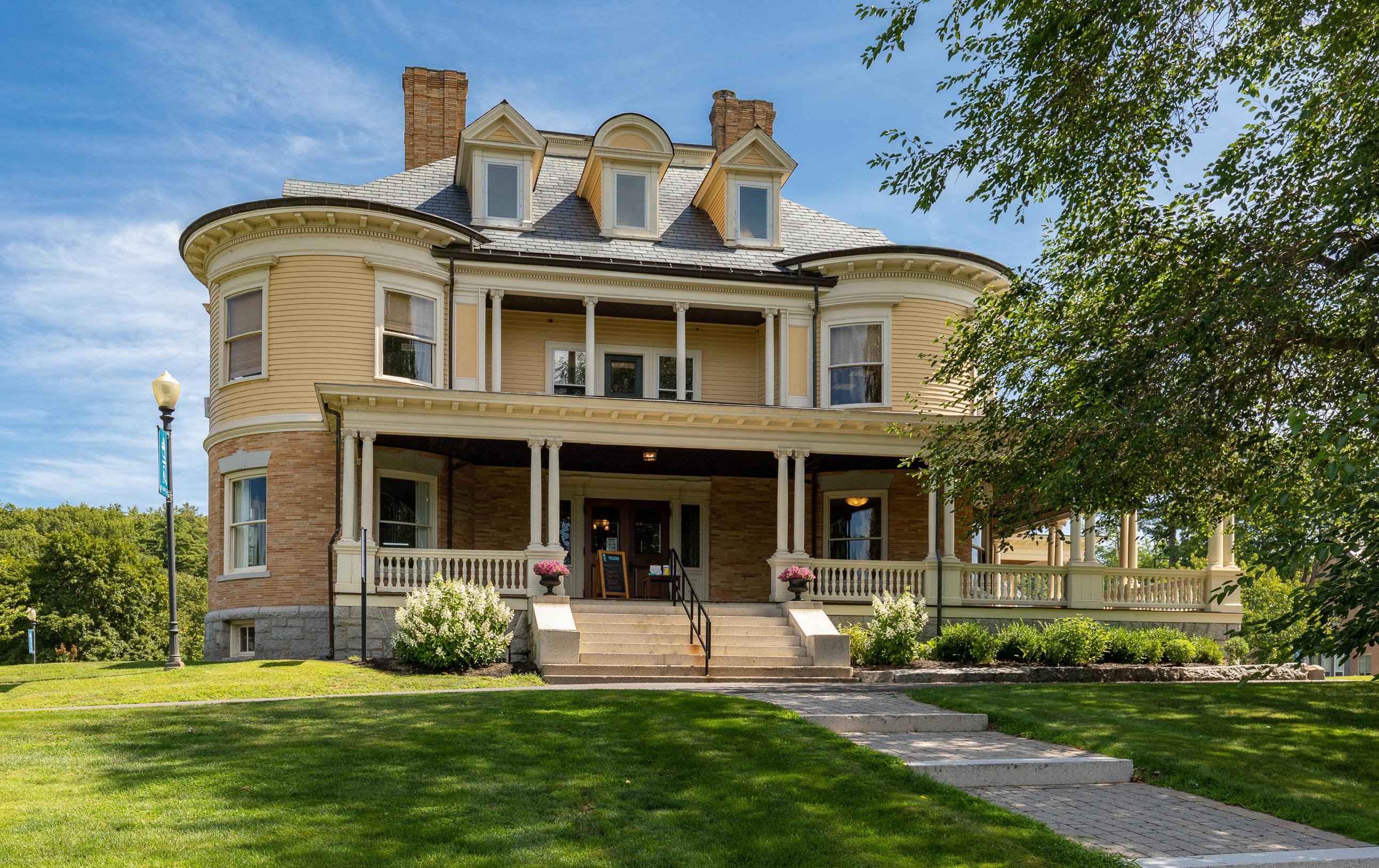
The Chadbourne-Thompson Society recognizes donors who make planned estate gifts to the School. Planned gifts are an essential part of Berwick’s long-term financial future and have helped shape the Berwick of today.
For more information, contact Director of Leadership Giving and Philanthropy Stephanie Caswell at 207-384-6396 or scaswell@berwickacademy.org.
CHADBOURNE-THOMPSON SOCIETY MEMBERS
Deborah K. Blouin ’59 James Cook ’63 and Paula Cook Bradley Damon ’63 Marie A. Donahue ’37 Aurora Dube 1925 Preston Eames ’65 C. Dennis Fink ’44 Nancy B. Fort, former parent Adolph Geyer 1931 Russell Grant ’45 and Marty Grant Doris Dixon Griffith ’39 Seth A. Hurd ’90 George E. Janetos, former advisor Alberta Morrill Johnson 1928 Kennett and Patricia Kendall, trustee, former parents Mary Jacobs Kennedy 1908 Stuart Kerr, son of former headmaster Natalee P. Ohayon Martin ’01 Lawrence A. Martineau ’64 and
Karen Martineau Perley D. Monroe ’48 Olive Purington Moulton 1922 Victor Perreault 1933 and
Helen Hasty Perreault Nancy Pindrus ’69 Wendy Pirsig, former trustee, parent Mary Byrd Platt, former grandparent Richard and Susan Ridgway, former headmaster, parents Anna May Flynn Smith 1931 William R. Spaulding, former parent, grandparent Owen Stevens ’48 and
Margaret Stevens Ella Estelle Geyer Stonebraker 1929 Mark H. Tay, trustee emeritus, former parent Roger Thompson 1925 and
Theresa Thompson Ms. Anne C. Willkomm ’83








